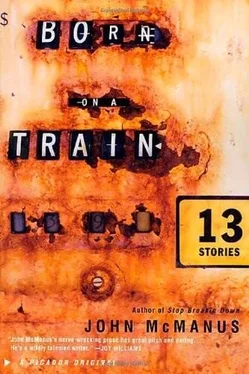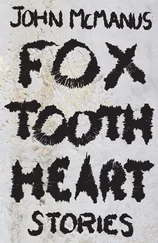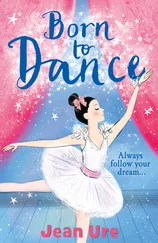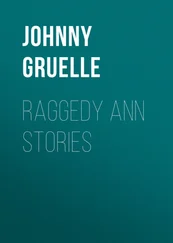No, I—
Should we try a rock station or a country station?
Letitia shook her head. She didn’t understand the stereos anymore, with all their symbols. She was embarrassed for having made a bad suggestion, so she sat in silence. She didn’t usually talk to Wendy much, because they already knew what the other would say. Letitia had been aware of all of Wendy’s thoughts for a long time. She didn’t speak for fifteen minutes, and the traffic sped faster and faster, seventy-five miles an hour now, she guessed. She couldn’t remember the last time she’d touched tree bark. She was handicapped and didn’t often go outside, except on drives with Wendy. Her children lived in Florida and Arizona, which were long drives. The cars were tailgating each other, weaving in and out of one another’s spaces like a flock of starlings. Letitia guessed it was only a matter of time until a highspeed collision pushed them through the concrete and off the bridge to their deaths.
I told you not to take the interstate, said Wendy.
But you’re driving. You’re the one that took the interstate.
It was your idea. You said it would be faster.
Wendy, you make your own decisions. You always have.
If I took Kingston Pike, you would have sat at every red light thinking how we should have taken the interstate.
I don’t even like the interstate, Letitia said. It just happens to be faster. She was shaking from the cars and from her nerves. She had taken insulin just a while ago. She was glad she’d finished the injection before the breakdown, or the lurch might have driven her needle right through her stomach.
It’s not so fast now, is it? said Wendy.
Letitia pointed at the trucks that rocked her body steadily, and Wendy’s body and the car, and said, It’s fast for all those people.
Crippled old ladies shouldn’t take the interstate.
Letitia tried to nod her head, but it was hard while traffic trembled in her like a live wire; she had to pause to figure out a way to move her body in two directions at once.
We shouldn’t even leave the house, said Wendy.
Of course we should leave the house.
I can’t even open my car door.
Wendy sounded hysterical; Letitia wished she would just calm down. She gauged the space between the left side of the car and the trims of passing vehicles; they ran as close to Wendy as she sat. She counted blurry faces. Wendy’s car had tinted windows so no one could see in; Letitia shifted in her seat, invisible to everyone but Wendy, who didn’t look but only frowned at the buggy windshield.
It’s fast, said Wendy. What a perfect reason.
I didn’t say it.
It’s so fast, we’ll die here, she said, that’s how fast it is, and Letitia, who wasn’t hypoglycemic quite yet, shook her head. She hated it when Wendy jumped to all her miserable conclusions. Wendy got scared of things, and so she didn’t like them. That was probably why the car had broken down at all; Wendy was just scared of traveling fast, so she willed it dead.
Things were fast now. The interstate was fast. That was why the government had built it. Men had arrived to buy Letitia’s childhood home and all its land, the fields around it, the foursquare Dixon farmhouse, which was slow; it never even moved. Sometimes it creaked at night like wildwood owls but it wasn’t ever fast till November 1959, when it was dynamited, dirt shoveled high atop its stone foundation. In its place the interstate shone. The lanes were drawn with bright, reflective paint. It reached the heights where only birds had flown before; it was a miraculous piece of road. It took some time to build up psychic resonance, because it was a new place, disconnected from the ground. It was like Letitia’s condominium, just across the freeway from Suburban Center — it didn’t have a soul yet. Developers had built the condo several years ago, in the nineties, but they ran out of souls in 1983, and houses had to grow them on their own now.
Wasn’t our farm near here? Letitia asked.
Wendy shook her head. It was farther west, by Lovell Road.
I think it was here.
You can think it was here, said Wendy, but it wasn’t.
Letitia was getting light-headed, so she looked out at the scenery. She didn’t see the parking lots and restaurants she’d seen before; instead she saw a field. The light was falling differently; thick white clouds were shadowing the land. A child in a bonnet raked up yellow hickory leaves. She stood beside a cantilever barn, and she was crying. She covered the dead cat with leaves like golden arrows; she basked in the warmth of it, rubbing soreness from the rake off her palms. She didn’t seem to hear the rumblings of the interstate above her. The highway was built on bridges, mounds of dirt, on pylons, and it reached the height of geese migrating north. It was almost primed.
See there, Letitia said, I feel it. It was here.
I don’t care if it was here, said Wendy, or if it never was anywhere at all.
Letitia squirmed in her seat. I need to pee, she said.
That’s just because of your blood sugar, Wendy said.
I know that, said Letitia. You don’t have to be so logical.
Wendy’s tears were making saltstains on the steering wheel. I’m not being logical, she said. You can’t help me.
Letitia patted her on the shoulder.
We’re helpless, useless women, Wendy said. She waved inside her window at the trucks that couldn’t see her, couldn’t stop. They went so fast she barely saw the bodies operating them, the faces. Her vision was bad. Poor Susie-cat, she said. She needs her Tender Vittles.
Letitia nodded. Mmm.
She’ll claw the carpet at the door, said Wendy. We’ll have to use the butter knife again to open it.
It’s only been a day that we’ve been gone.
Cats don’t know the days from weeks, said Wendy.
Susie knows.
I don’t know.
She knows the sun.
Wendy shook her head uncertainly. Letitia watched the child move across the field below the highway. She was a pretty girl, eight or nine years old; she looked familiar. She hid the cat below so many leaves no light would ever find the way down to its dead and open eyelids. Letitia frowned; she’d done that to a cat once, buried it too shallow. The dog pack came and scavenged it to shreds and made her cry. She found the kitten’s eyeball in the cow pasture. What if it woke up and it weren’t a cat, but just an eyeball? She buried it below three feet of rocks, checked it every day so it never could awaken with the sunrise, but she never found the other eye, the left one, except in nightmares.
Land flows the same here, Letitia said.
The same as what?
As Daddy’s land.
There’s not a creek.
They buried it.
There never was a creek here, Wendy said.
How do you know? Letitia said.
It doesn’t feel like water.
But Wendy hadn’t lived in the farmhouse very long. She’d gone away to boarding school in Alabama when she was ten years old. It was a school for dance; Wendy was going to be a ballerina. She had a tutu Mommy made; she wore pink tights from Sears and Roebuck’s catalog. She didn’t pay attention to the animals, didn’t know which cats were living, which had died. Letitia wrote her sister letters listing names of newborn kittens and their colors, whether they were nice or had sharp claws already. She missed Wendy; she wondered why her sister never wrote her back. She figured she had the wrong address; maybe she was spelling Tuscaloosa wrong. It was a long word, and hard to write; she didn’t see why Wendy would go to such a place. Dance was boring. Letitia tried performing a ballet inside the barn with all her cats, or she made what moves she thought might compose it, but really she’d never seen a ballerina. It hurt to balance on her toes, to bend her knees. Even at the age of nine she had the symptoms of arthritis.
Читать дальше












